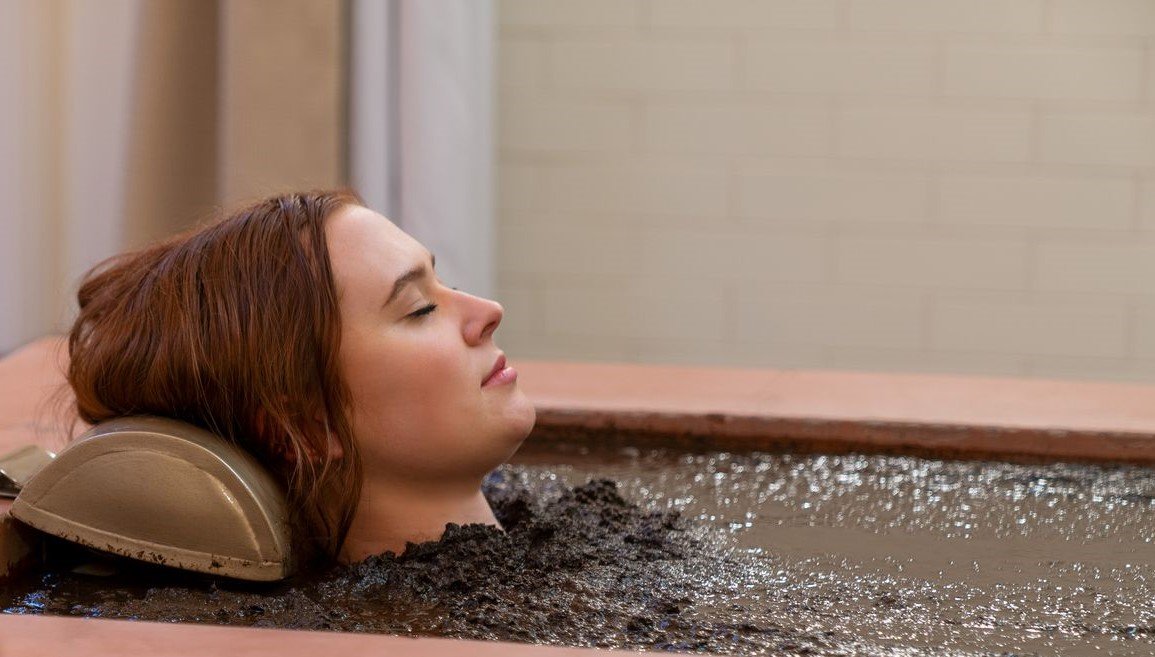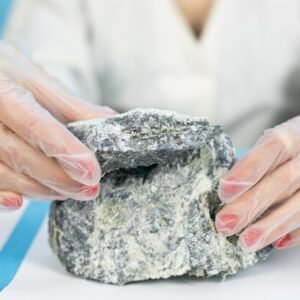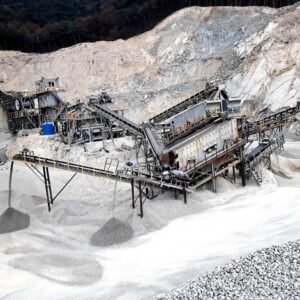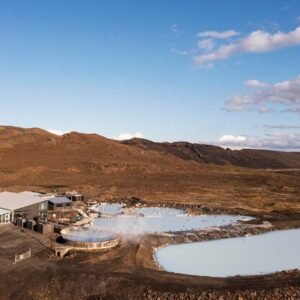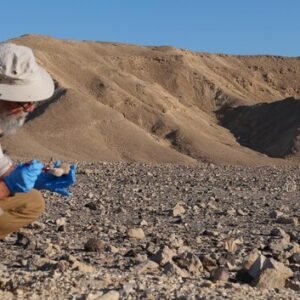Bentonite clay, a natural substance formed from volcanic ash, has been used for centuries in various forms for its purported healing properties. One of the most popular and effective uses of this clay is in the form of a bath, where it is either dissolved in water or applied directly to the skin. Bentonite clay baths have gained significant attention for their supposed detoxifying, soothing, and healing qualities. These claims have piqued the interest of many, particularly those seeking natural remedies for skin issues, detoxification, and general well-being. In this article, we will explore the numerous benefits of bentonite clay baths, as well as the potential side effects, in great detail.
What is Bentonite Clay?
Bentonite clay is a soft, natural clay primarily composed of montmorillonite, a type of clay mineral. The clay forms in areas where volcanic ash has settled over time and reacted with water. Its unique composition gives it powerful absorbent and adsorbent properties, meaning it can bind to toxins, heavy metals, and other impurities, pulling them from the body. This makes bentonite clay a popular ingredient in many skincare products, as well as an ingredient for detoxification methods, such as clay baths.
The term “bentonite” was first coined in 1898, referring to the large deposits of this clay found in Benton, Wyoming, USA, but it is now found in many parts of the world. The clay is often referred to as “living clay” due to its potential to draw toxins from the body and its reputation as a natural healer. The two primary types of bentonite clay are sodium bentonite and calcium bentonite, each having its own unique characteristics. For detox baths, calcium bentonite is often preferred because of its ability to absorb more toxins, though both forms have beneficial properties.
Benefits of Bentonite Clay Baths
1. Detoxification
The most commonly cited benefit of a bentonite clay bath is its ability to detoxify the body. Bentonite clay has a strong negative charge, which allows it to attract and bind to positively charged toxins, heavy metals, chemicals, and other impurities that may be present in the body. When a person soaks in a bentonite clay bath, these toxins are supposedly drawn out through the skin, leading to a cleaner and healthier body.
Many proponents claim that bentonite clay baths can help detoxify the liver, kidneys, and other organs by reducing the toxic burden they must manage. This is why many individuals use bentonite clay baths as part of their detox regimen or when they feel the effects of overexposure to environmental pollutants, chemicals, or unhealthy diets. While scientific evidence on the specific effectiveness of bentonite clay for detoxification through the skin is still limited, anecdotal evidence suggests it may aid in cleansing.
2. Skin Health and Improvement
Bentonite clay is renowned for its skin benefits, especially when used in a bath. It has been traditionally used for soothing skin irritations, acne, eczema, psoriasis, and other conditions. Its natural absorbent properties can help cleanse the skin by drawing out impurities from the pores. This makes it an excellent choice for those struggling with oily or acne-prone skin.
When used in a bath, bentonite clay can leave the skin feeling softer and more supple. Its minerals help nourish the skin, and the process of soaking in a clay-infused bath may also help reduce the appearance of blemishes, scars, and inflammation. People who suffer from skin conditions like eczema may experience relief due to the anti-inflammatory and soothing effects of bentonite clay.
Bentonite clay has a slightly alkaline pH, which is similar to that of the skin. This can make it particularly useful for balancing the skin’s pH, helping to maintain a healthy skin barrier. The healing properties of bentonite clay also extend to its ability to soothe rashes, cuts, and burns by reducing swelling and promoting faster healing.
3. Alleviating Muscle and Joint Pain
Another benefit of bentonite clay baths is their ability to relieve muscle and joint pain. Soaking in warm water mixed with bentonite clay can help reduce soreness and inflammation, providing relief to individuals who suffer from conditions like arthritis or fibromyalgia. The clay works by increasing blood circulation to the muscles and joints, which aids in the healing process and reduces pain.
Additionally, the warmth of the bath itself can help loosen tight muscles and alleviate tension. For athletes, regular use of a bentonite clay bath after intense physical activity can help in muscle recovery and in reducing stiffness.
4. Improving Circulation
Soaking in a bentonite clay bath can also improve circulation throughout the body. When the body is immersed in warm water, blood flow naturally increases. The addition of bentonite clay enhances this effect by helping to draw impurities and toxins out of the skin. As the toxins are removed, circulation improves, leading to a healthier and more efficient system overall. Improved circulation can also contribute to the healing of skin conditions and muscle recovery.
5. Relaxation and Stress Relief
A bentonite clay bath can also promote relaxation and stress relief. The very act of soaking in a warm bath can help to calm the nervous system, reducing stress and anxiety. For many, a bath is a ritual for unwinding and clearing the mind after a long day. The presence of bentonite clay enhances the experience by providing additional soothing benefits, helping the body to relax deeply.
Incorporating essential oils like lavender or eucalyptus into a bentonite clay bath can further enhance the stress-relieving properties of the soak, making it a truly therapeutic experience. The minerals in the clay may also help to release tension in the body, leaving you feeling rejuvenated and centered.
6. Enhancing Skin Elasticity and Firmness
Bentonite clay has been noted for its ability to improve skin tone and texture. The minerals found in bentonite clay, such as silica and calcium, can stimulate collagen production, which in turn enhances the elasticity and firmness of the skin. This can help reduce the appearance of fine lines and sagging skin, making it a beneficial treatment for aging skin.
The rejuvenating properties of bentonite clay can restore a youthful glow, helping to improve the overall appearance of the skin. Many users report that after several clay baths, their skin feels firmer, more toned, and revitalized.

7. Anti-inflammatory and Antimicrobial Properties
Bentonite clay contains various minerals with anti-inflammatory and antimicrobial properties. This makes it an excellent option for individuals with inflammatory skin conditions or infections. The soothing and cooling effects of a bentonite clay bath can help reduce redness, swelling, and irritation. Furthermore, bentonite clay is believed to have antimicrobial properties that can help fight off harmful bacteria on the skin’s surface, reducing the likelihood of infections.
8. Improving Digestion and Gut Health
Although more research is needed, some individuals report improved digestion after regular bentonite clay baths. This is due to the clay’s ability to bind to toxins in the body, potentially improving overall gut health. Some proponents believe that bentonite clay can help clear out harmful bacteria or parasites from the digestive system when taken internally, though this should always be done with caution and under medical supervision.
9. Environmental Benefits
Bentonite clay baths offer environmental benefits, especially when compared to synthetic products used for similar purposes. The natural composition of bentonite clay means that it does not contain harmful chemicals or artificial additives, making it a more sustainable and eco-friendly option. Many commercial skincare products contain preservatives, fragrances, and other chemicals that can be harmful to both the skin and the environment. When bentonite clay is used in its natural form, it avoids these concerns, as it is non-toxic and biodegradable. Additionally, the extraction process for bentonite clay, if done responsibly, has a minimal environmental impact, particularly when companies like CMS Industries prioritize sustainable mining practices.
For people seeking natural and green alternatives for their self-care routines, bentonite clay baths serve as an eco-friendly option. Not only does this natural clay reduce the need for synthetic bath products, but it also offers the potential for widespread use without causing significant harm to the planet. Thus, bentonite clay can be an important part of a broader eco-conscious lifestyle, helping individuals minimize their environmental footprint while reaping the physical benefits of this extraordinary natural resource.
10. Alternative to Commercial Bath Products
For those looking to avoid potentially harmful additives found in many commercial bath products, bentonite clay offers a powerful, natural alternative. Many commercial bath salts, foams, and oils contain preservatives and fragrances that can irritate sensitive skin or disrupt the skin’s natural balance. On the other hand, bentonite clay is free from these additives and is considered safe for most skin types, providing a purifying and healing experience without the concerns associated with chemically-laden products. It serves as a multi-functional tool in bath care: detoxifier, skin soother, muscle relaxer, and overall skin revitalizer, without the need for additional ingredients.
Using bentonite clay in baths is an inexpensive, natural solution for personal care that can replace multiple products. It eliminates the need for harsh exfoliators, skin cleansers, or other costly spa treatments, making it a highly affordable option for those interested in maintaining healthy skin or improving wellness without resorting to commercial alternatives. This approach also ensures a more holistic approach to personal hygiene, aligning with the growing trend of natural, DIY self-care practices.
11. Cultural and Historical Uses of Bentonite Clay
The use of bentonite clay for health and healing dates back thousands of years. Ancient civilizations, including the Egyptians and Romans, are known to have utilized various types of clay for their medicinal properties. Bentonite clay, specifically, was widely used by indigenous people in many parts of the world, including Native Americans, who incorporated it into their healing rituals for its detoxifying effects. The practice of using clays for external and internal purification is a longstanding tradition, with bentonite standing out as one of the most powerful and versatile natural substances.
In modern times, bentonite clay has remained popular due to its enduring reputation as a natural remedy for skin problems, digestive issues, and general detoxification. As people become more attuned to holistic health practices, the interest in ancient wellness techniques like clay baths has surged, blending historical practices with contemporary wellness trends. This growing enthusiasm for traditional remedies highlights the timeless value of bentonite clay, which continues to be used for both its health benefits and its ability to connect us with ancient forms of self-care.
12. The Future of Bentonite Clay in Wellness and Skincare
As more individuals seek natural alternatives to conventional beauty and wellness products, bentonite clay’s popularity continues to rise. In the future, we can expect more innovation in the ways bentonite clay is utilized. The rise of holistic health practices, along with the growing demand for clean beauty products, presents an opportunity for bentonite clay to become a mainstay in wellness routines across the globe. Researchers are also exploring its uses in various industries, from agriculture to water purification, further broadening its potential applications.
Skincare companies are increasingly incorporating bentonite clay into face masks, scrubs, and even hair treatments, recognizing its effectiveness as a purifying and healing agent. With advances in technology and a deeper understanding of its molecular properties, new forms of bentonite clay may emerge that offer even greater benefits, such as enhanced absorption, greater skin compatibility, and improved overall effectiveness. As the demand for natural, toxin-free products grows, the future of bentonite clay in wellness and skincare looks very promising, with many believing it could become an even more integral part of everyday self-care rituals.
Side Effects of Bentonite Clay Baths
1. Skin Sensitivity and Irritation
While bentonite clay is generally considered safe for external use, some individuals may experience skin sensitivity or irritation, especially if they have very sensitive skin. It is important to perform a patch test before taking a full bath, especially for those with conditions like eczema or psoriasis. The high absorbent properties of bentonite clay can cause dryness or flakiness, so it’s essential to follow up with a moisturizer after a clay bath.
2. Overuse and Dehydration
One of the risks associated with bentonite clay baths is dehydration. Bentonite clay is very absorbent, and when used excessively, it can draw moisture from the skin. If you soak for too long or too frequently, it may leave your skin feeling dry and parched. It’s important to keep the bath duration within a reasonable range (typically 20-30 minutes) and hydrate your skin with a good lotion afterward. Drinking water before and after the bath can also help prevent dehydration.
3. Respiratory Irritation
Though rare, inhaling bentonite clay dust or particles while preparing the bath could cause respiratory irritation in sensitive individuals. It’s important to handle the clay with care, avoiding inhaling the dust, and ensuring that the bath area is well-ventilated. If you have a history of respiratory issues or asthma, it is advisable to consult with a healthcare provider before using bentonite clay in any form.
4. Pre-existing Health Conditions
People with certain health conditions, particularly those involving the skin, kidneys, or liver, should consult with a healthcare professional before using bentonite clay for detoxification. The clay’s detoxifying properties can have an impact on these organs, especially when used in excessive amounts. Pregnant women and individuals with compromised immune systems should also take precautions and speak with a doctor.
5. Mess and Cleanup
Bentonite clay can be quite messy, both during the bath and afterward. After the bath, it is essential to rinse thoroughly to avoid residue clinging to the skin, tub, or bathroom surfaces. This can require additional cleaning time and effort. Furthermore, the clay can cause clogs in plumbing if large amounts are washed down the drain, so it is recommended to clean the tub immediately after use.
India’s Largest Bentonite Mines Owner, Processor & Exporter: CMS Industries
CMS Industries, based in India, is one of the largest owners, processors, and exporters of bentonite clay. With a reputation for delivering high-quality bentonite products, CMS Industries serves both the domestic and international markets. The company specializes in the extraction, processing, and refinement of bentonite clay, which is used in a wide range of industries, from cosmetics and pharmaceuticals to construction and agriculture.
As a leading supplier of bentonite clay, CMS Industries ensures that its products meet stringent quality standards, making them suitable for various applications, including detox baths. With state-of-the-art facilities and a commitment to sustainability, CMS Industries has become a trusted name in the bentonite clay industry, providing customers with premium-quality products backed by years of expertise and innovation.



